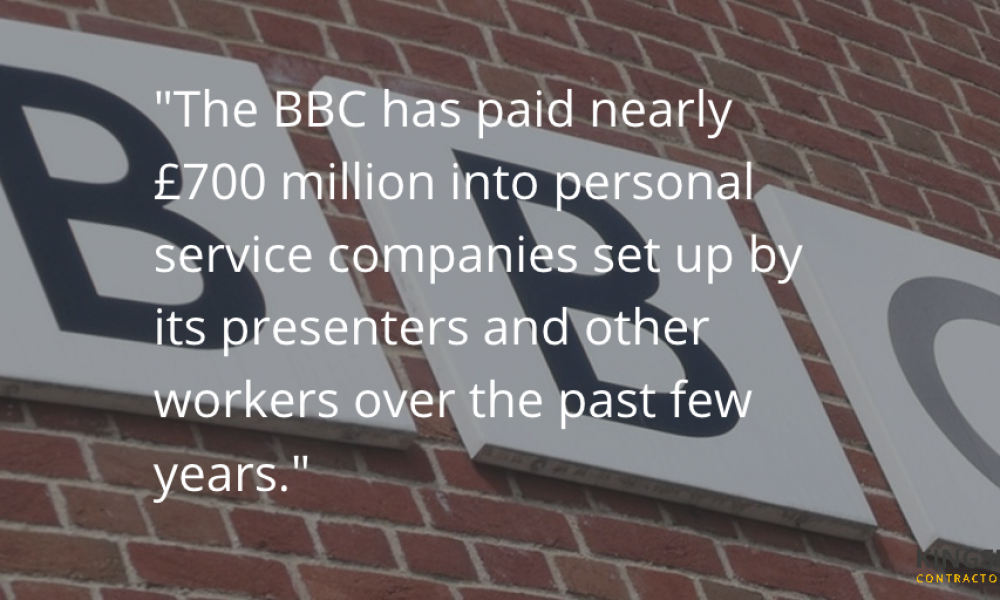BBC Caught up in IR35 Fiasco
All the hand-wringing and toing-and-froing about IR35 reform has taken a darker turn in recent days with the revelation that…
Released yesterday (15th November), a report from the National Audit Office has stated that the BBC required some freelancers to…

Released yesterday (15th November), a report from the National Audit Office has stated that the BBC required some freelancers to operate through personal service companies (PSCs.)
Investigation into the BBC’s engagement with personal service companies reveals that the BBC has paid nearly £700 million into personal service companies set up by its presenters and other workers over the past few years.
The findings further emphasise the shambolic nature of the off-payroll IR35 rules as they currently stand. The legislation, in its current format, lets down contractors and freelancers as well as the public sector bodies which seek to engage their skills.
With the private sector rollout currently scheduled for April 2020, it would be sensible for the government to iron out the cumbersome barriers to correct IR35 implementation as soon as possible. If this doesn’t happen, the transition is likely to be mired in difficulty.
The report noted that more than 6,700 freelancers were paid through PSCs at the peak of the scheme. Hiring workers through these PSCs meant that the BBC did not have to pay employers’ national insurance. The arrangement also offered the individuals involved potential tax advantages.
Today a large number of presenters and workers face large claims from HMRC, who state that they avoided tax by being paid as contractors rather than employees.
So, what is the sticking point, apart from the obviously disastrous financial implications for the individuals involved? To put it simply, many of those hired under the agreement have accused the corporation of giving them no choice.
The numbers involved are significant. The report reveals that there are over 100 open investigations into BBC-related PSCs. Between 2011 and 2018 the BBC paid over £668 million to freelancers.
In their defence, the BBC insists that almost all of the people under investigation were legitimately classed as freelance workers. A large proportion of those freelancers only undertook occasional work for the company: camera crew, actors, and entertainers to name a few. Around 60,000 freelancers a year are hired by the BBC.
In a damning indictment, the NAO report found that a startling 92% of on-air freelancers who recently had their status reviewed by the BBC were ’employed for tax purposes determination’, meaning that they should never have been contracted through PSCs.
The company estimates that around 800 of its presenters will face a challenge from HMRC, and has been trying to financially assist those who are struggling to meet tax liabilities they had, until relatively recently, been unaware of.
Press speculation has suggested that the BBC is attempting to broker a deal with the taxman that would allow them to pay a lump sum in return for dropping all actions against its presenters for back tax.
Where the case goes from here is currently unclear. For their part, the BBC have stated that ‘we recognise there are still issues to address and remain committed to resolving them. We are in discussions with our presenters and are actively engaged with HMRC to explore the options for resolution.’
If previous cases are anything to go by, it will not be an easy task to satisfy HMRC. Whatever happens from here, the potential problems caused by IR35 regulations and the general lack of clarity and understanding around them are clear for all to see.